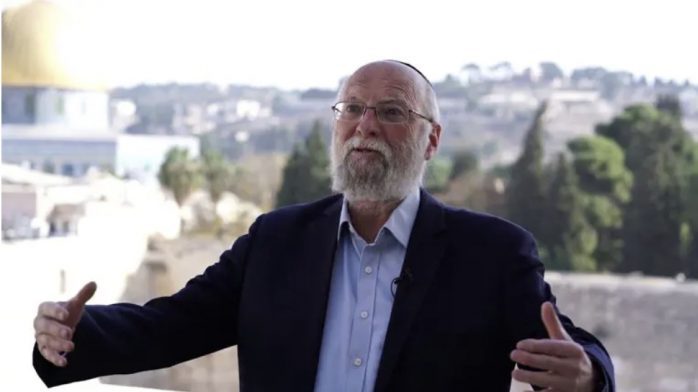Our sources deal with the spiritual aspects of naming a child – boy or girl.
Many of our sources state that our exodus from Egypt was in the merit of the descendants of Avraham, Yitzchak and Ya’akov, Sarah, Rivka, Rachel, and Leah. That despite the harsh servitude and persecution, they diligently continued to identify as the Jewish nation by their stubborn refusal to relinquish the symbols of their national unity by maintaining and passing down their Hebrew names, unique dress, language and the moral values of proper sexual behavior.
I wish to relate to the value of maintaining traditional holy Hebrew names.
First names often play a dominant role in shaping our identities, relationships, and interactions with the world. Surnames may carry family history and lineage; but it is our first names that often embody our individuality and personal narrative.
Spiritual Naming of a Child
Our sources deal with the spiritual aspects of naming a child – boy or girl.
Jewish tradition views a child’s name as far more than a mere identifier. It is a profound spiritual statement, a reflection of the child’s inner essence and potential, a link to the past, and a prayer for their future character and destiny. The choice of name is, therefore, approached with seriousness, prayer, and a deep awareness of its lasting spiritual impact.
The Ari’zal (Rabbi Yitzchak Luria), a Kabbalist, stated that when naming a Jewish child, the name that is finally chosen was already placed into the minds of the parents by Divine influence.
Similarly, the Vilna Gaon (Harav Eliyahu ben Shlomo Zalman) taught that when naming a child, parents are imbued with Ruach HaKodesh (divine inspiration), guiding them to choose a name aligned with the child’s unique mission and potential in life. This “flash of insight” is considered divine inspiration leading to the name that truly expresses the child’s soul.
At the beginning of life, we are given a name, and at the end of life we acquire a “good name” earned through a life of Torah and mitzvot. It is that name and reputation that we take with us to our other-world existence.
I wish to begin a holy trend with the target number of one million Jews in the galut.
From today on, identify yourself by your holy Jewish name. Granted that after living with a spouse for 50 years and calling each other Bobby and Shirley, it could feel a bit awkward. However, as time goes on and the pride of bearing a holy name extends to more Jews, the name you are called up to the Torah will become a valuable part of your life. Call your children by the Jewish names you gave them and teach them to call their siblings by their Jewish names. As the saying goes, “a habit becomes second nature”.
It is especially at this time that when you exhibit pride in your Jewishness, you are sticking a “finger in the eye” of the antisemites. It is as if you are saying, “I am a proud Jew. In my veins flows the blood of thousands of years of being one of Hashem’s chosen people; but in your veins flows the putrid blood of thousands of years of genocidal frustration”.
In essence an antisemite maliciously denies the God of Am YIsrael, Creator of heaven and earth. If we cringe before the goy by shuttering the windows of our shuls and yeshivot or if we let antisemitic comments pass as trivial, then we are committing a desecration of Hashem.
We fight back even by simply exhibiting Jewish symbols – not for being able to live as a happy citizen in the galut, but for the glory of protecting and honoring the God of Am Yisrael.
In the natural progression of life, a cause produces an effect and the effect itself becomes a cause of another effect. And so it is that when we are proud of who and what we are, we will eventually be drawn closer to our original source and be returned to our Holy Land.
So, my dear brothers and sisters, pass the word on.
Part Two
THE FLAME WILL RISE UP BY ITSELF
Shavuot is the day when Hashem designated the Jewish nation to be His chosen people and gave us the holy Torah with its many laws, requirements and restrictions.
The first mitzvah in our parsha of lighting the menorah as part of the daily sacrificial service – “sheds light” on the essence of Shavuot.
The parasha begins:
And Hashem spoke to Moshe, “Speak to Aharon and say to him, when you raise up the candle, the seven stems should point in the direction of the menorah.
Rashi explains the unusual use of the term “when you raise up the candle” which should have been “when you light the candle”.
Aharon was directed to light the candle until he would be certain that the flame would rise up by itself.
The Torah contains Hashem’s cradle-to-grave directives to His people Yisrael. There is no aspect of human life that does not fall within a Torah mitzvah. The laws are stated in the Written Torah and expounded upon in the Oral Torah. Halachic decisions appear in the Shulchan Aruch, and they are put into practical application in the responsa literature.
Question: Was it Hashem’s desire to create “Halachic” robots, where the written word would be sovereign, and as good, disciplined soldiers, we would mechanically fulfill its dictates davening without understanding what we are saying, giving our 10% tithe without really feeling the pain of the recipient, crying on Tisha b’Av over a Beit Hamikdash that no one really misses, putting away the kinot (lamentation) booklets with the knowledge that we will need them again next year?
Or is there more to being a Torah observant Jew?
Obviously, Hashem “had in mind” a very elevated purpose for all the mitzvot.
I will explain:
The Gemara (Ketubot 110b) records:
Rabbi Chiya ben Gamda would roll in the soil of Eretz Yisrael (from time to time), adhering to the verse (Tehillim 102:15):
For her children desired her stones and favored her soil
Rashi, the great teacher and commentator, in his commentary on the actions of Rabbi Chiyah ben Gamda simply repeats the verse:
For her children desired her stones and favored her soil
What is Rashi, in his great wisdom, telling us by simply quoting the verse?
I suggest that Rashi is alluding to a fundamental concept in Yiddishkeit.
If you look carefully, you will see that Rashi quotes the verse from Tehillim as stated in the Gemara’s text, while omitting the essential word meaning in adherence to the verse.
Rashi is in effect saying, that if one loves Eretz Yisrael because that’s the requirement of the law as stated in the verse, then that is tantamount to respecting one’s parents just because the Torah says so. In both cases love that is adjudicated by law is a contradiction in terms; one cannot be compelled to love. Love is beyond the law which stops at the gates of one’s heart.
Aharon was directed to light the menorah until the flame “will rise up by itself”.
So, too, is the goal of Shavuot. The mitzvot were initially presented to us by Hashem as compelling requirements, with the intention that as we would grow in spirituality, the mitzvot would become a reflexive part of the Jewish personality. And just as we would become elevated from the fundamental command to respect and be in awe of our parents to the level that this is what should be, so too must it be with regard to all the other Divine commands in the Torah.
Rashi is telling us that Rabbi Chiya ben Gamda rolled in the soil of Eretz Yisrael, not because the verse instructed him to love the land, but because he himself was aware of the profound kedusha (sanctity) inherent in the Land of Israel.
A short story to illustrate the above.
Moshe and Chaim, two yeshiva students in Brooklyn, were comparing their individual private meetings with the Rosh Yeshiva.
Moshe discussed his desire to live in Eretz Yisrael, and Chaim brought to the Rosh Yeshiva his intention to marry a young lady he was seeing.
The conversation went as follows:
Moshe: “The RY said that as long as I am learning so well and especially when there is no imperative mitzvah to live in Eretz Yisrael, there is no reason to leave – although one fulfills a mitzvah when doing so.”
Chaim: “The RY said that as long as I am learning so well and especially when there is no imperative mitzvah to marry just now, there is no reason to stop and get married – although I would fulfill a mitzvah if I would marry her.”
Moshe: “The RY also said that it is easier to make a living in the US than in Eretz Yisrael, so stay here.”
Chaim: “The RY also said to me that getting married would require me to work to support my new family, whereas now I am free of such responsibilities in order to learn.”
Moshe: “The RY also said that there is little kedusha in the land where the initiatives for its resettlement came from people who were not frum.”
Chaim: “The RY also said that since I met the young lady through my non-frum cousin, and even though she is very much so, no good can come from such a marriage.”
Then Chaim looked at Moshe and said with a great smile on his face, “Do You know something Moshe? I’m going to marry her, because I love her!”
Moshe responded, “And I’m going to Eretz Yisrael, because I love her!”
Rabbi Nachman Kahanais a Torah scholar, author, teacher and lecturer, Founder and Director of the Center for Kohanim, Co-founder of the Temple Institute, Co-founder of Atara Leyoshna – Ateret Kohanim, was rabbi of Chazon Yechezkel Synagogue – Young Israel of the Old City of Jerusalem for 32 years, and is the author of the 15-volume “Mei Menuchot” series on Tosefot, and 3-volume “With All Your Might: The Torah of Eretz Yisrael in the Weekly Parashah” (2009-2011), and “Reflections from Yerushalayim: Thoughts on the Torah, the Land and the Nation of Israel” (2019) as well as weekly parasha commentary available where he blogs at https://NachmanKahana.com





